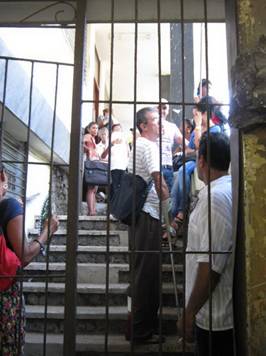By K. Barth
When we thought we had it all resolved and the Bolshevik godfather would guarantee life for ever and ever, the beginning of the end came. The old and apparently well-formed USSR fell apart; that happens with giants with feet of clay.
I remember well the day I internalized the collapse of European socialism, personally I was also in process of transition, from high school to college and in the midst of this atmosphere of insecurity and a poor future prognosis, a feeling of uncertainty nearly strangled me; it was the uncertainty of a nation that was facing one of the major economic, political and spiritual crises in its history, although not the first, and much less the last of these crises; Cubans have learned to survive the declines of the totalitarian system that makes decisions like the tide flows, self-contradictory ones, all in its stubborn battle to prevail and not release the power and voice of command.
What would we do without the collaboration of the hammer and sickle? The Special Period, an unforgettable and traumatic step for those of us who live at the bottom, brought this question in red capital letters, but in any case the government — once the magic lamp was broken and the genie who had sustained it in the first decades of its existence disappeared — would have to take certain steps, openings or changes, even if they were not congenial to the Marxist and socialist ideology that we’d been introduced to in mind-blowing speeches full of slogans and mottoes.
Who knew a few years before the collapse that it would be the hard currency of the capitalist enemy that would give us some oxygen and revive us from our economic coma, the serious prognosis of which remains, even today. What’s more, who would have said that we would agree to foreign investment and, in consequence, the creation of a mixed economy, although it would be, and still is, the capitalist side that lifts us up, keeps us on our feet.
It was from this hard time, whose primary specialty was hunger and many shortages, that my antipathy toward the regime began to flourish, a regime whose only obsession was to prevail regardless of any consequence, always justifying its countless mistakes and defeats, the most significant of them, the economic and as our famous Karl Marx knew, after an economic injury a hopelessly maladjusted society arises, with the regrettable loss of moral and spiritual values, because man must feed his body first and then cultivate his spirit.
Despite all the misfortunes that the nineties brought us, in the fullness of my youth, I could still see things around me like the color of roses, and I think the decade of suffering also marked my life with countless emotions, the university, film festivals and huge lines to see the films on display, often trying to outsmart the doorkeepers and the police to enter the film for free because our pockets were completely empty and our desires to see good films huge.
Blackouts on the Malecon, the only way to see the stars from the city, with friends singing, filling the night with the sound of guitars and voices. That’s when I knew the reality of drugs in Cuba, especially in Havana, an issue that it was forbidden to touch on in the official media until it was too obvious; a troubadour friend singing lyrics that said, in one of his verses: “Furrows on the roof, energy restricted…” and then I understood through him that the furrows were of marijuana, and boys and girls my age were smoking to distance themselves from the hard conditions they faced; even today I can hardly explain how hard that reality was.
Although Christian and provincial, almost completely naive about stories, I could live with those young people in Havana filled with concerns about life and eager to escape the misery around them.
I also had friends in the center of the island, my best friend was from Santa Clara, a poet, together we created the rock of poetry where we invited all our troubadour acquaintances, then unknown in both domestic and foreign music.
Our favorite was Fernando Becquer with his wonderful deep voice and his restless figure, we sang, read poetry, drank tea, if only a tepid, watery concoction that could be called so, but nevertheless we were happy and had dreams.
We went every Friday to the home of the culture in Alamar, the rock of The Bicycle, where Pedro Luis Ferrer often sang. We would go despite our hunger and our growling stomachs with just a few coins to return to our student residence in Vedado.
One night after enjoying a banquetazo with Pedro Luis, we walked to the stop to catch a bus; during the special period at any hour or the day you could wait three or four hours, whether it was morning, afternoon, or midnight.
I preferred to walk rather than wait for the buses and the wait was so long that time that we decided to walk from Alamar to Vedado, but we only made it as far as the tunnel under the bay and they stopped us and wouldn’t let us continue with our long nocturnal trek and made us go to a nearby bus stop, exhausted and with a hunger greater than I’ve ever felt in my entire life.
From so much walking and so little eating, I had gotten down to only ninety-six pounds and was so underweight and malnourished, and not only my body began to suffer the ravages of that terrible period, but my shoes as well, my white sneakers that I’d bought at one of the many pawn shops the government had opened so people could exchange jewelry, clothes and utensils of gold, silver, platinum and other valuable materials for trinkets, taking advantage of the need that we had to have clothes to wear.
For these tennis shoes and a couple of blouses and some jeans I had exchanged a small gold ring I’d inherited from my father’s childhood, another one, of the same metal and very beautiful, belonging to my mother, and some small earrings, the first I ever owned.
But the shoes were the only ones I had and they had began to come apart at the soles and had two holes, so you can imagine how the soles of my feet hurt walking on the hot asphalt, and I still have the marks of that today, two large calluses on the bottom of each foot.
Those were my tennis shoes for all occasions. One night while listening to the sermon at the Methodist Church in Vedado, I crossed my feet and a sister told me not to because she could see the holes in my shoes. Smiling I told her that I wasn’t ashamed to show my poverty and that God loved me and in very special way. That answer brought me, like a prize, a pair of sandals that the sister got from the congregation, one of the happiest moments of my life.
Between the trips around town in the packed “buses” we called Camels, the terrible food in the student residence, and the scanty garments and shoes to clothe me, the little money I possessed came from my parents who would send me something from time to time and the miserable student stipend.
There were long and stinking journeys by train to see my family during vacations. Unbearable and endless blackouts that prevented me from sleeping at night. And so passed the end of my adolescence and my youth, during the Special Period, the nineties. My relentless pursuit of God and finding His presence in every step of the way, helped me to survive the times of most intense crisis.
When I remember this stage in my life and in the life of my nation, what I remember more than the personal pain is the social pain. We Cubans emerged from this time of total misery terrified. The anecdotes about the lack of soap and hygiene articles and other basic needs persist to this day Soups invented with the few available ingredients, rice, a few beans, plantains or some other vegetable, used to be the only meal of the day in many homes and people would beat their chests because other days would pass with no food at all.
Since then Cubans are so used to sharing with others that we habitually advise friends or relatives when we are coming to visit and arrive loaded down with supplies so as not to create havoc in the family with whom we share them.
One of the most cruel and deepest marks of this black decade was the rafter crisis, the great migratory stampede that came as a result of our material, economic and spiritual drowning. Like every other inhabitant of the island I have my own experiences of this, friends who left and managed to achieve their dream of prosperity and freedom. Others who ended up in the waters of the Straits of Florida.
Tragic stories that are also a scar that won’t stop bleeding. The country is divided, by the force of so many blows that still remain in our saddened land and those who left, whom we never forget, day after day, year after year, so many who departed. But these experiences I will speak of in a future post. Certainly I could write a thousand articles and not come to the end of the terrible nightmare of that night still without end, which can be summarized with a single name: The Cuban Socialist Model.
January 21 2012
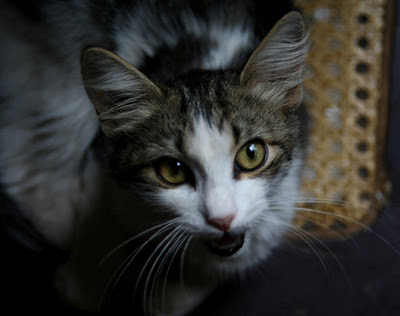 Gia’s eyes were Earths, Planet Earths in miniature. Silvia recently asked me: are Gia’s eyes inhabited?
Gia’s eyes were Earths, Planet Earths in miniature. Silvia recently asked me: are Gia’s eyes inhabited?












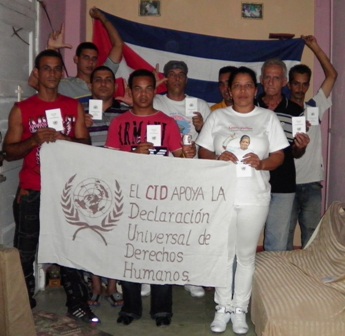
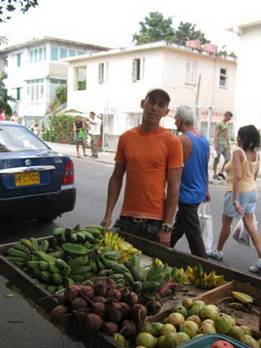
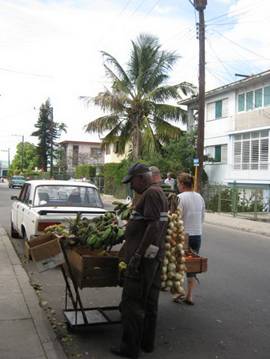
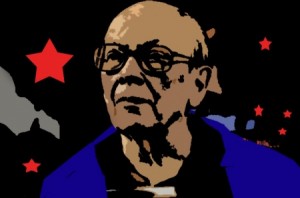

 Several months ago a friend gave me this magnificent manual entitled “Toolbox for citizen control of corruption.” Accompanied by a CD with numerous practical examples, I have read it in search of answers to a scourge that hits us harder every day. Right now we are surrounded by calls to eliminate the diversion of resources and theft in State enterprises. Thus, I have immersed myself in the pages of this book to learn what we, as individuals, can do in the face of such occurrences. Not surprisingly, I discover a word repeated over and over throughout every chapter: transparency. An effective anti-corruption campaign must be tied to exposure and denunciations in the national media. For every misappropriation a news report must offer the details, each embezzlement must face the most intense public criticism.
Several months ago a friend gave me this magnificent manual entitled “Toolbox for citizen control of corruption.” Accompanied by a CD with numerous practical examples, I have read it in search of answers to a scourge that hits us harder every day. Right now we are surrounded by calls to eliminate the diversion of resources and theft in State enterprises. Thus, I have immersed myself in the pages of this book to learn what we, as individuals, can do in the face of such occurrences. Not surprisingly, I discover a word repeated over and over throughout every chapter: transparency. An effective anti-corruption campaign must be tied to exposure and denunciations in the national media. For every misappropriation a news report must offer the details, each embezzlement must face the most intense public criticism.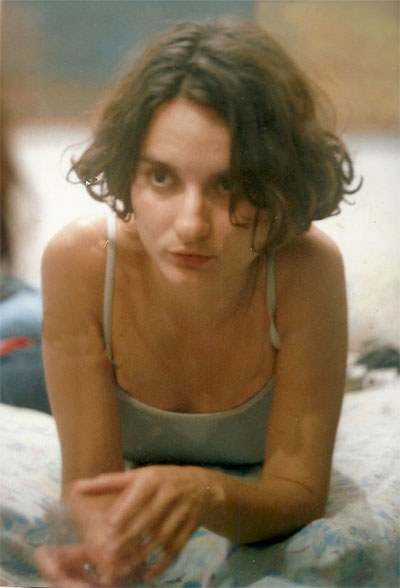

 It’s heard in the streets from several people selling potatoes, before the arrival of this product in the farmers markets, at the elevated price of 20 Cuban pesos, “a bag with four potatoes.”
It’s heard in the streets from several people selling potatoes, before the arrival of this product in the farmers markets, at the elevated price of 20 Cuban pesos, “a bag with four potatoes.”






































